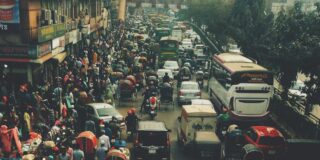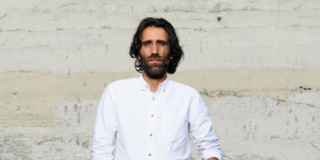This article is part of our July focus on “Australia in the World”. Click here for more articles in this issue.
By Raymond Lau.
Canberra’s $24 million bid to join the UN Security Council for 2013-14, launched by Prime Minister Kevin Rudd in March 2008, paid off on 18 October 2012. During the 67th session of the UN General Assembly, Australia, along with Rwanda, Argentina, South Korea and Luxembourg, was elected to serve as one of the elected 10 non-permanent members (E-10) on the 15-member Security Council for two-year terms beginning on 1 January 2013. For the first time in 27 years, and the fifth time in UN history (1946-47, 1956-57, 1973-74 and 1985-86), Australia will again play a key role in exercising the Council’s function of maintaining international peace and security with the five permanent members (P-5): the United States, United Kingdom, Russia, France and the People’s Republic of China.
Has Australia honoured its Responsibility to Protect in saving civilians in Darfur from large-scale attacks?
Describing the outcome as “a big, juicy, decisive win”, Foreign Minister Bob Carr suggested that Australia’s success in securing a seat on the Council was “an endorsement of Australia’s good global citizenship” and its being “an activist, committed middle power”. Indeed, Australia’s long term engagement and contribution to the UN since the world body was found in 1945 are exemplary. Along with deploying the first group of UN military observers to Indonesia in 1947, Australia is a signatory to the 1948 Convention on the Prevention and Punishment of Genocide. As the first human rights treaty adopted by the UN General Assembly, the Genocide Convention places a strong emphasis on criminalising acts of intentional annihilation of a national, racial, ethnic or religious group, whether in time of peace or war. Article 1 demands the double obligation of signatories to prevent and to punish genocide, which is considered a crime under international law. Article 8 requires calling upon the UN to take such action for “the prevention and suppression” of acts of genocide.
But perhaps more significantly, Australia is one of the most significant contributors to the idea of the responsibility to protect (R2P), a principle that was unanimously adopted by the UN General Assembly at the 2005 World Summit. This R2P principle, first formulated by then Foreign Minister Gareth Evans in 2001, highlights the responsibility to protect populations from genocide, war crimes, crimes against humanity and ethnic cleansing at national and international levels. In other words, R2P is concerned with saving lives by protecting population from widespread and systematic mass atrocities.
Then, in the face of what has been widely referred to either as “the first genocide of the twenty-first century” or “genocide in slow motion”, what is Australia’s role in responding and halting the conflict in Darfur, Sudan? Has Australia honoured its Responsibility to Protect in saving civilians in Darfur from large-scale attacks?
Darfur in war: Khartoum’s counter-insurgency campaign and its unwillingness to protect
Darfur, meaning homeland of the non-Arabised and Muslim Fur ethnic group, has been deprived of resources for economic development and lacks political autonomy. The essential feature of the Sudanese government’s policy of marginalisation is the deliberate underdevelopment of a uniformly Muslim region of approximately six million people. Decades of oppressive government rule and neglect made Darfur a “time bomb waiting for a fuse” and it finally reached the tipping point in early 2003 when two rebel groups in Darfur—the Sudan Liberation Army (SLA) and the Justice and Equality Movement (JEM)—launched their own insurgencies against government forces in the region.
In response to the rebel attacks, the Sudanese government launched the counter-insurgency campaign by recruiting, organising, arming, training and financing groups of nomadic Arab militias—Janjaweed (“devil-horsemen”). Documents obtained by Human Rights Watch demonstrated Khartoum’s official policy of systematic support for and coordination of the militias leaders and members—from “allowing” their activities and “securing their vital needs”, “providing them with sufficient armoury” and opening new camps to provide “relative impunity for abuses committed by Janjaweed militia members against civilians”. In particular, the government and Janjaweed attacks on the Darfur villages consisted of “heavy aerial bombardment followed by ground attacks by Sudanese army troops and the Arab militia Janjaweed forces”. As a result of Khartoum’s disproportionate counter-insurgency campaign against the two Darfur-based rebel groups, it is estimated that some 180,000 people have died in the conflict because of the combined effects of war, hunger, malnutrition and conflict-induced disease.
Australian government’s response: mirroring the international community’s failure to protect
In an absolute sense, the Darfur conflict is hardly a case of “non-intervention”. Indeed, the international community has responded by deploying the largest peacekeeping mission in the world since July 2007—the African Union/United Nations Hybrid Operation in Darfur (UNAMID)—and triggering the UN Security Council referral to the International Criminal Court (ICC) in March 2005. The ICC has issued two arrest warrants against the Sudanese President Omar Al-Bashir for his alleged criminal responsibility in relation to genocide, crimes against humanity and war crimes in Darfur in 2009 and 2010 respectively. This is the first time in ICC history that a sitting head of state is being indicted and for the Court to seek an indictment for the gravest of all international crimes—genocide.
providing humanitarian assistance and giving very limited support to the under-funded and ill-equipped UNAMID have largely been Canberra’s policy towards Darfur
Yet, as this year marks the 10th anniversary of the conflict, the very word “Darfur” is, by and large, synonymous with “the failure of the international community to stop war crimes, crimes against humanity, genocide, and ethnic cleansing”. This is largely attributed to the sequential approach adopted by international policymakers in order to avoid endangering the peace negotiation that was bringing an end to Sudan’s long-running North-South war. Along with the priority given to safeguard the 2005 North-South peace process, the need to secure Khartoum’s cooperation for the effective establishment and operation of UNAMID has also constrained the international community’s willingness to confront the Khartoum regime. To make things worse, the ICC judicial intervention provides Sudan the opportunity to outwit the international community: expelling humanitarian agencies in Darfur so as to divert international attention from Bashir’s alleged crimes. In this respect, people in Darfur continue to suffer without adequate protection and ICC indictees remain at large. Cajoling Khartoum for cooperation and support over the deployment of a civilian protection force while pursuing justice against the Sudanese president and his government for the ongoing atrocities in Darfur are, therefore, temporally incompatible.
In responding to the Darfur crisis, Australia’s policy response has been largely consistent with the Security Council’s emphasis on finding a non-military solution to the conflict in Darfur. This is highlighted by AusAID’s package of humanitarian assistance, which includes food aid and air transport, on-the-ground logistics support and health projects. Australia has provided more than $82 million of assistance since May 2004. Yet, notwithstanding its acknowledgement of Darfur as one of the world’s worst humanitarian disasters, the Howard government utterly rejected a request by the UN on contributing military personnel to the AU/UN hybrid mission because of “heavy military commitments in other parts of the world”. To date, since the change of government in 2007, Australia only contributed eight personnel to UNAMID. In this sense, providing humanitarian assistance and giving very limited support to the under-funded and ill-equipped UNAMID have largely been Canberra’s policy towards Darfur.
Perhaps the Australian government was at the forefront of urging the Security Council to take timely and decisive action in Libya during 2011, but Canberra’s “slow, hesitant and inadequate” response to Darfur sits uneasily with Australia’s advancement and endorsement of the R2P principle. Here, the implications are twofold. First, with respect to Australia’s unreserved military commitment to Iraq after the 9/11 attacks, it reveals that preserving a close defence relationship with its foremost security ally, the United States, is still a central preoccupation of Australian foreign and security policy. Second, because of “the perceived limited relevance of events in Africa to Australian domestic politics”, Africa has, by and large, remained a low priority in the Australian foreign policy agenda.
After Australia’s Security Council win: where now for Canberra?
This relative neglect of Africa, however, has largely been reversed because of the Rudd government’s efforts to foster a new engagement with Africa. Most visibly, Canberra’s broadening and deepening of the country’s relationships with the continent is evidenced by AusAID’s “Looking West” strategic approach to aid to Africa. But, in particular, given the strong support from African nations that Australia received during its bid for the Security Council seat, the elevation of African issues in Australian foreign policy seems not only inevitable but also justifiable.
One key issue after Australia’s UN victory will be what agendas Canberra should pursue when it assumes the Council’s rotational Presidency in September. While Carr has identified women’s role in global peace as Australia’s key priority on the Council, there are two main grounds to make the decade-long Darfur crisis a credible focus for policymakers in Canberra.
The first ground is that there has been an apparent change in international attention to South Sudan’s independence and the heightened tension between the Two Sudans since the split in mid-2011. This lack of attention and concern is largely attributed to then UNAMID commander’s announcement that the war in Darfur “has effectively ended” in 2009. Yet, ten years after the conflict erupted, civilians continue to suffer from increased insecurity and state-sponsored violence. Therefore, even though the ICC Prosecutor Fatou Bensouda has urged the Security Council to increase its efforts to end the ongoing impunity in Darfur, the Security Council’s decision to trigger the ICC’s jurisdiction for the investigation of atrocity crimes committed in Darfur will not provide immediate and adequate protection to civilians in the region.
Against the backdrop of Australia’s new engagement with Africa, this is an opportunity for Canberra to put back on the international radar screen the issues of civilian protection in Darfur. With its Security Council Presidency in September, Australia needs to use its seat on the Council to strengthen UNAMID’s efforts to protect civilians before offering support for the ICC’s efforts to bring alleged perpetrators of past and ongoing crimes in Darfur to justice. In particular, as a well-respected advocate of R2P principle, the Australian government can exert its influence on the Security Council to adopt a “protection first, punishment later” approach in Darfur. This ensures that the ICC’s responsibility for pursuing justice is not used by the Security Council as an instrument of diplomacy, and, even worse, a substitute for civilian protection.
Second, apart from its alliance with the United States, re-engaging with multilateral institutions is an important basis for Australian foreign policy under Kevin Rudd. Australia, as an “independent middle power”, is not obliged to buy into the US argument that the international community needs to focus on avoiding war in southern Sudan at the expense of Darfur. Rather than being seen as “America’s deputy sheriff”, pushing the Security Council to provide a more robust protection to civilians in Darfur will show the world that Australia can exert its “creative, middle-power diplomacy” by offering fresh insights into this decade-long conflict.
“To make a difference in shaping the international events that in turn shape our nation’s future,” Kevin Rudd proclaimed during his tenure as Foreign Minister, is “the business of Australian foreign policy.” As Australia assumes the Security Council Presidency in September, it is time for the government to translate words into deeds—to bring the civilian protection concerns in Darfur back to the Council’s agenda. After all, pursuing justice is no substitute for providing protection.
Raymond Kwun Sun LAU is a teaching and research assistant at the School of Political Science and International Studies, the University of Queensland. He holds a PhD in Political Science from the University of Queensland. His doctoral research examined the international community’s response to genocide and mass atrocities, including through the emerging doctrine of the Responsibility to Protect (R2P) and the International Criminal Court (ICC). He is broadly interested in African politics, international criminal justice and humanitarian intervention since the 1990s.




